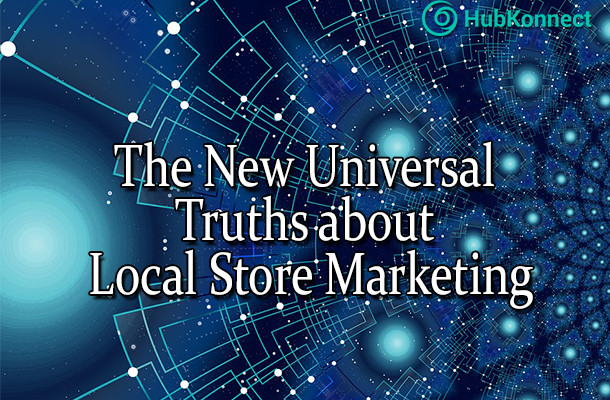The interesting thing about Local Store Marketing (LSM) is that it’s even more relevant with today’s technological advancements. Technology is often best used when it’s a complement to a traditional form of marketing.
The emphasis in that last statement is on “complement”. In today’s world of mobile apps and chatbots, some franchisees feel that they can rely on mobile apps and national advertising to do all of their marketing for them. After all, they are often contributing a significant amount to a national marketing fund! Why would they need to create an LSM plan? Other franchisees are responsible for all aspects of creating a marketing plan for their individual locations, from grand openings to awareness building to promotional messaging. They know that they need LSM, but they are often perplexed as to what tactics should be used to achieve their objectives or how much they should spend to market their locations.
I want to share what I consider to be the NEW Universal Truths about Local Store Marketing. These are truths that are extremely relevant today, and they are exhibited in large global organizations, in smaller regional chains, and in start-ups alike.
Truth #1: Everyone Needs LSM
Why? Because direct customer relationships build loyalty, which results in success. No matter how much money is spent at the national or regional level, you MUST create true loyalty through direct contact with your customers. Mobile apps don’t create a relationship—they convey information. Television ads help to create a national brand image that customers expect to see when they visit their hometown location. It’s LSM that delivers on those messages. Customers will go out of their way to patronize businesses that they appreciate. Only through direct LSM will you and your employees create that bond that will keep your customers coming back again and again.
Truth #2: LSM is a Balance of 3 Key Things
There are three key components to all successful LSM plans: Promotion, Experience, and Community.
Promotion is price and variety related.
Experience is a fun, enjoyable environment with genuine Interactions.
Community is local engagement and presence with potential customers.
